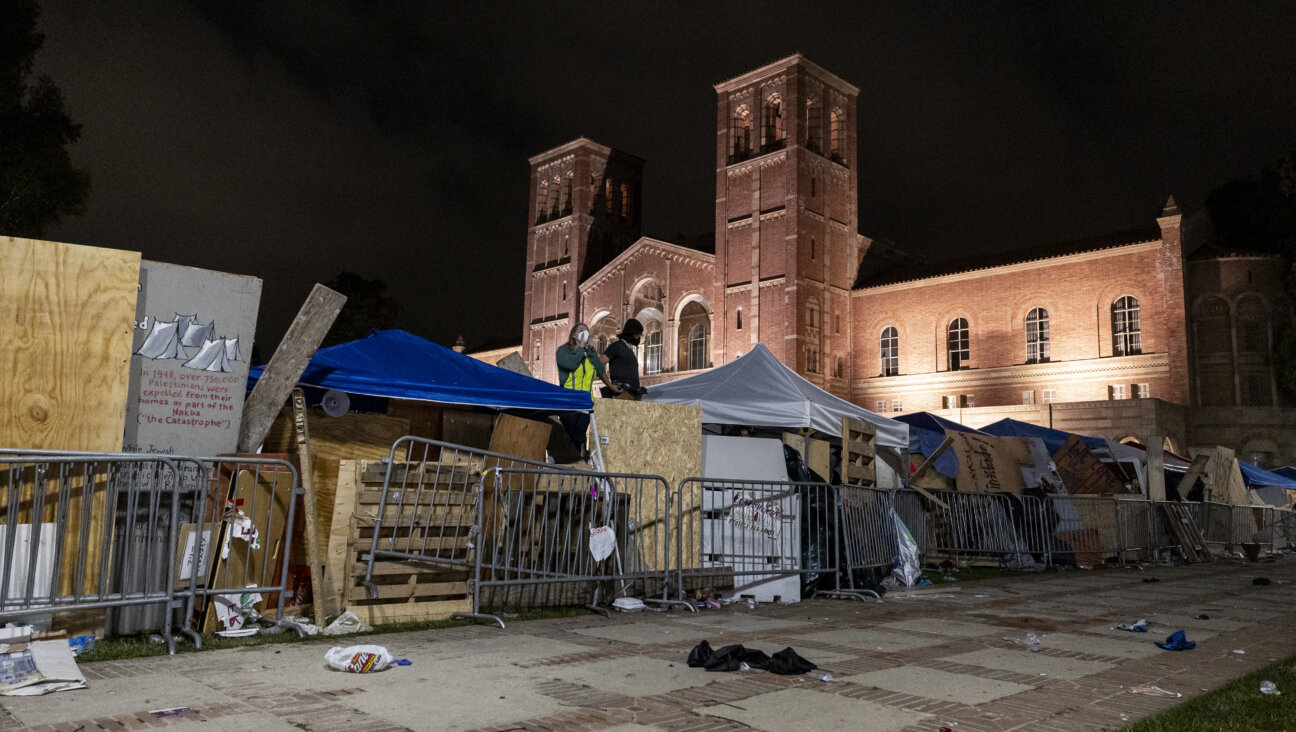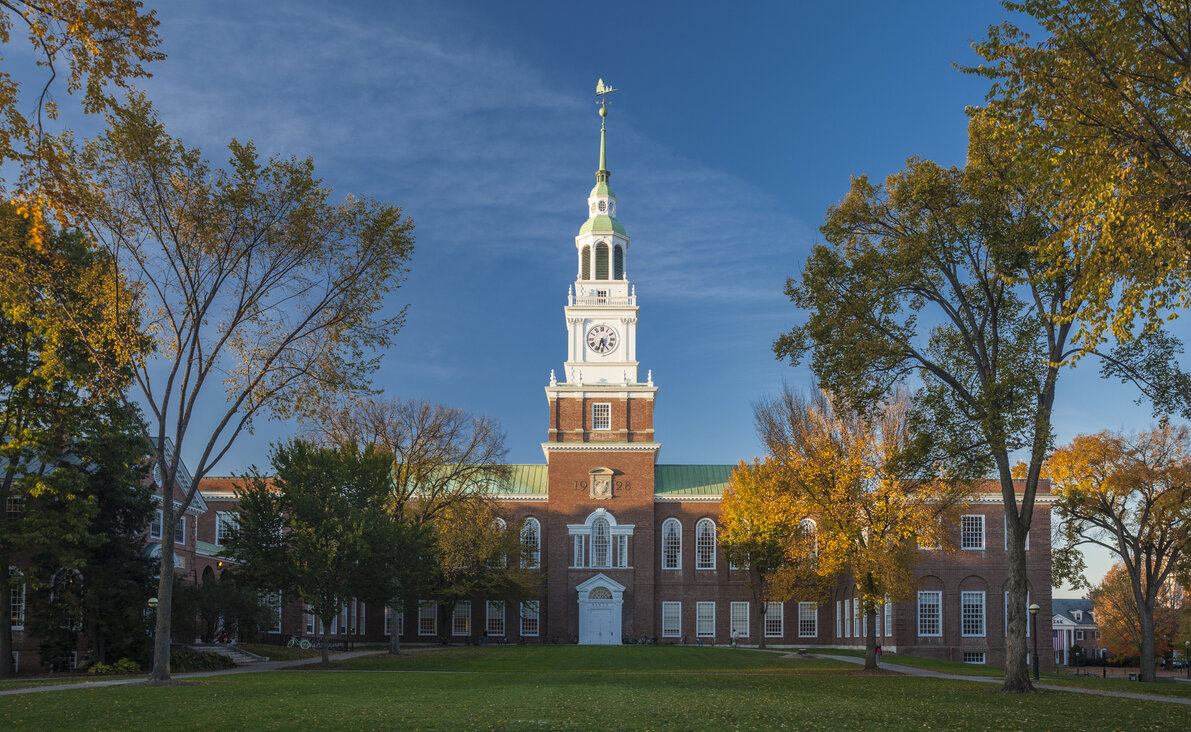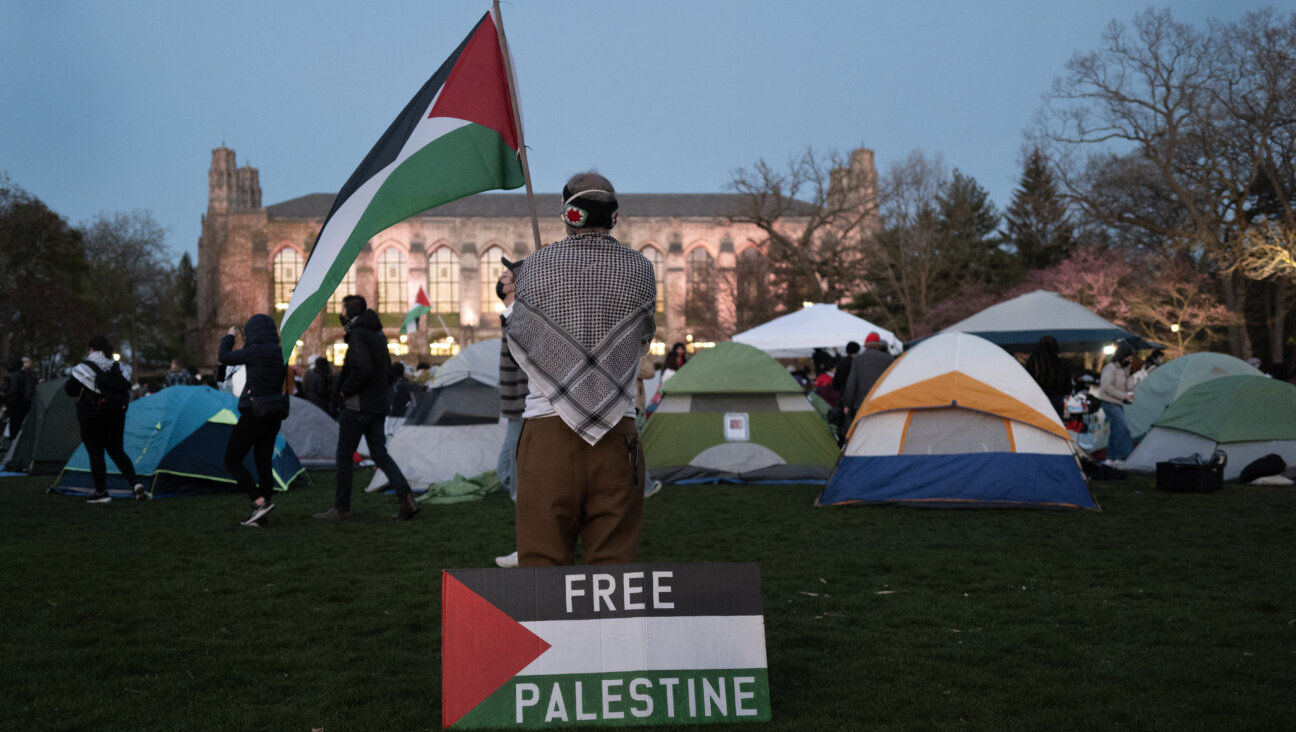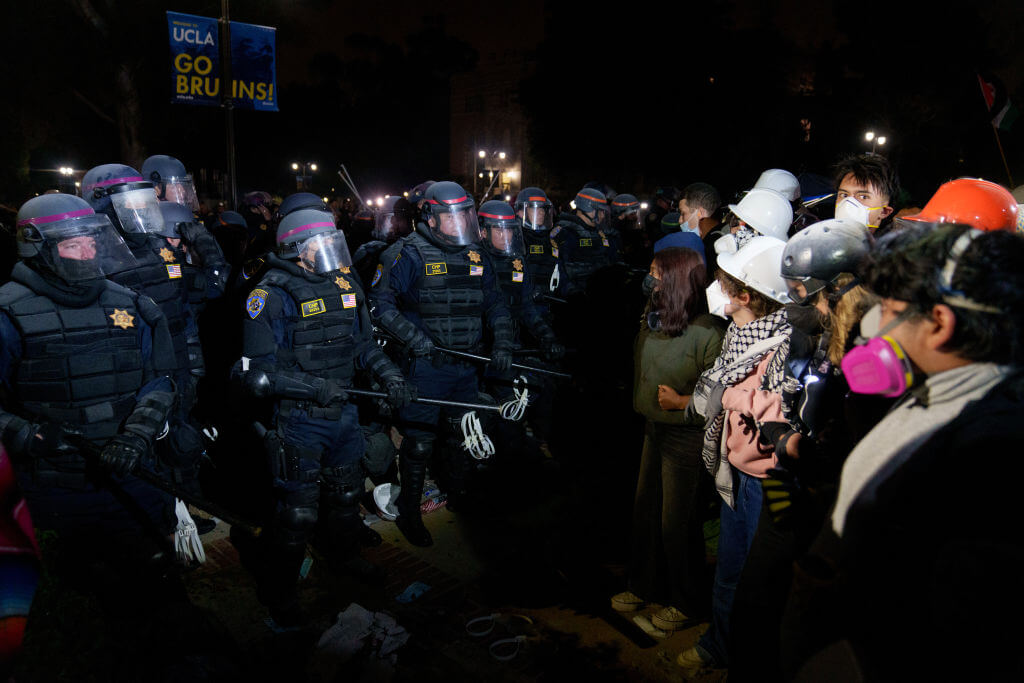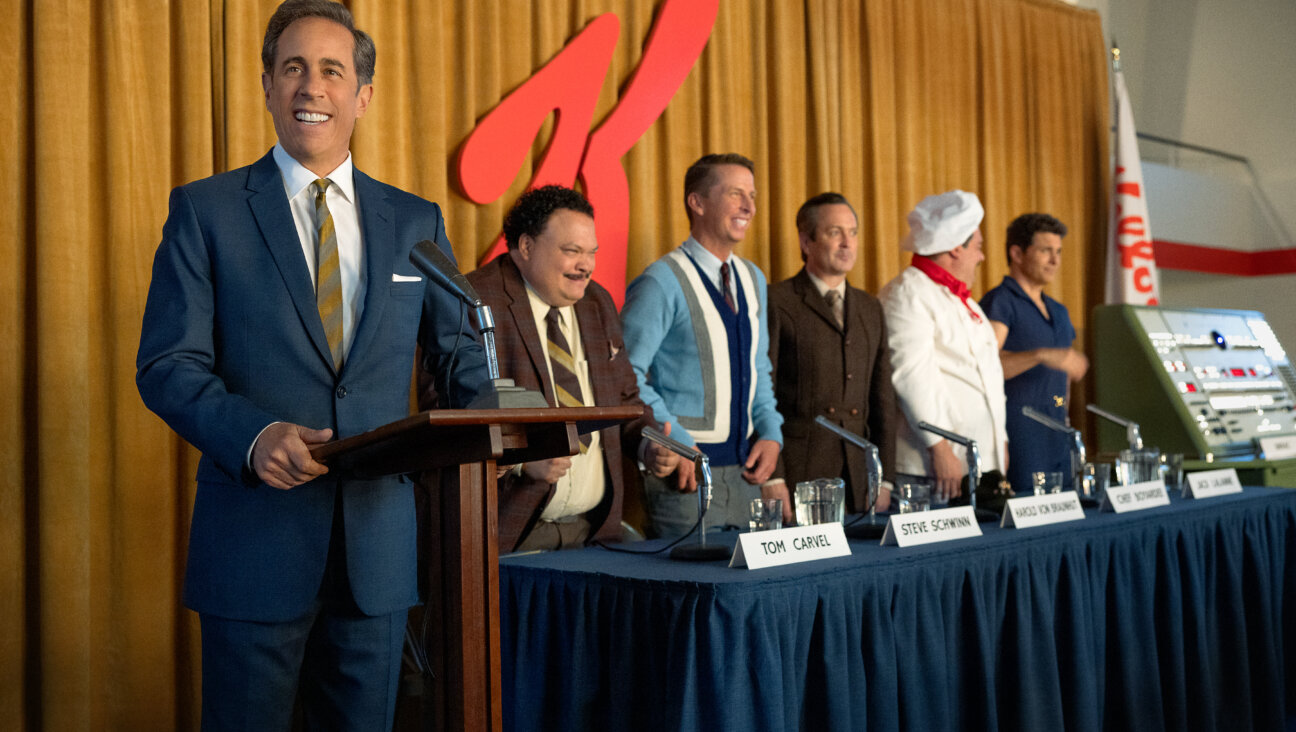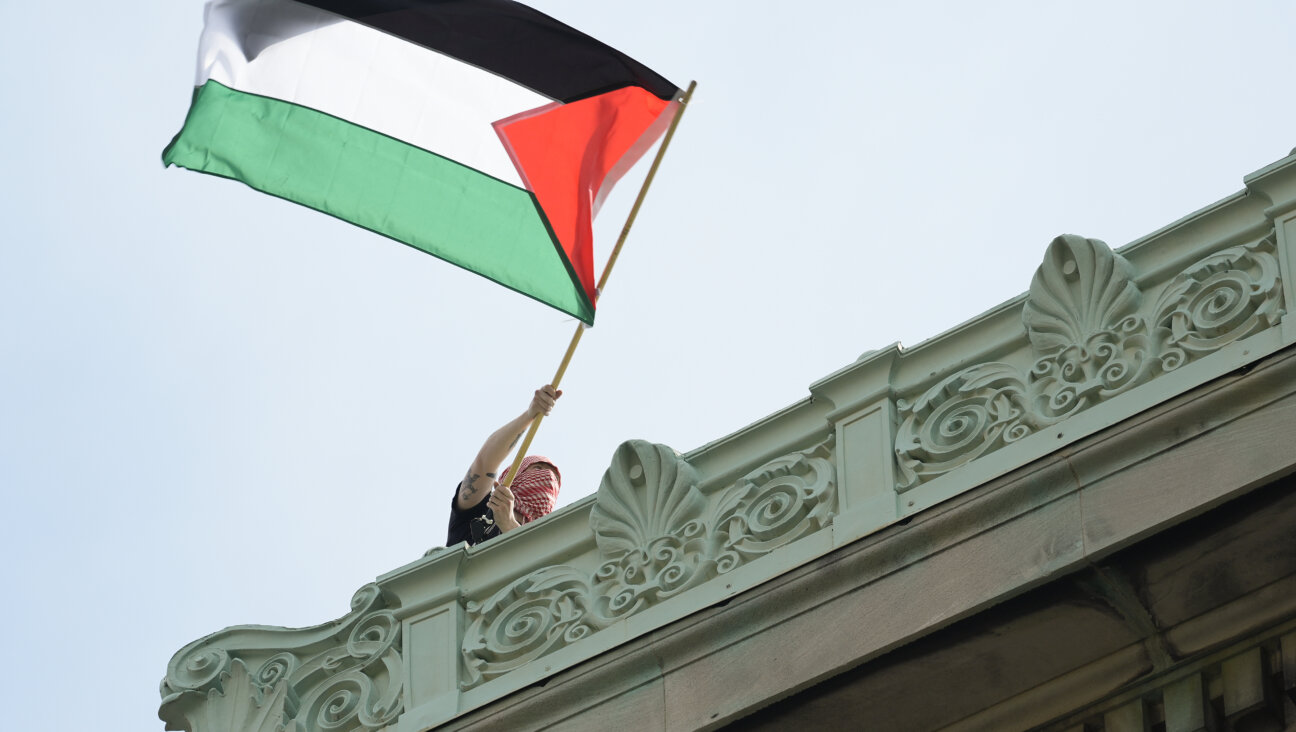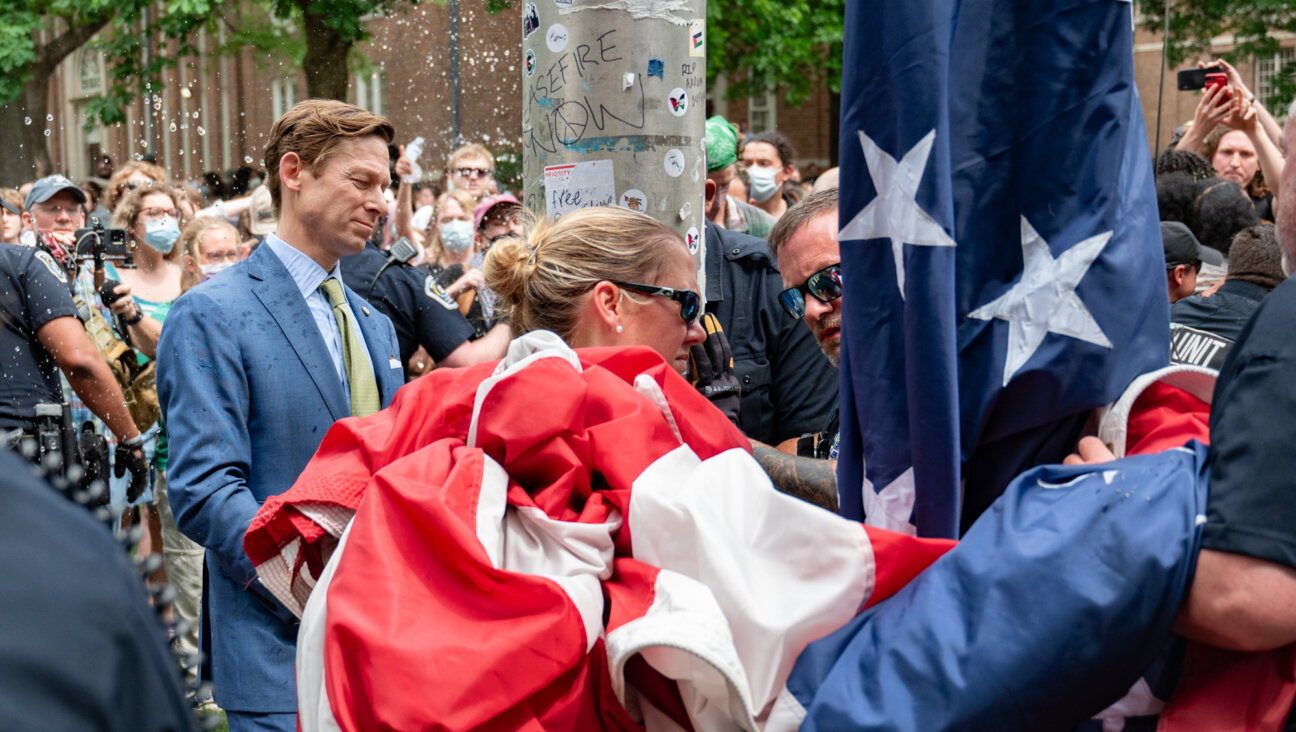Nazis destroyed Munich’s main synagogue in 1938. Parts of it were just found in the city’s river.

Fragments of the former Great Synagogue of Munich are seen at the site of discovery at the Isar River in Munich, July 4, 2023. (Jewish Museum Munich)
BERLIN (JTA) — Alongside Munich’s river, construction workers made a sensational discovery last week: Stone tablets carved with the Ten Commandments from the city’s former main synagogue, which was torn down in the summer of 1938 on Adolf Hitler’s orders.
The find was announced almost exactly 85 years after the building was destroyed.
The object — along with 150 tons of rubble from the synagogue, including parts of columns — had likely lain on the banks of the Isar River since the 1950s, when the company hired to carry out the demolition used the material to shore up a dam.
Workers discovered the material while extending the same river at an artificial lake.
“Last Wednesday, the Munich water works department found stones with some decorations under the water,” Bernhard Purin, director of the Jewish Museum in Munich, told the Jewish Telegraphic Agency on Thursday. “They started their own research, and via Google they found out that the same company that had destroyed the synagogue in 1938 did the renovation work in 1956.”
The city department contacted state landmarks officials, who then called Purin.
“I went with them to the site on Thursday, and it became immediately clear that the broken stones were part of the Great Synagogue,” Purin said. “The first thing I saw was the Tablet of Laws. They saw it as an important piece, so they separated from the rest.”
The city is arranging to transport the stones to a storage area and will continue searching the area for more segments of the synagogue. It will be a hard task: The Ten Commandments alone weigh more than half a ton.
Purin said the museum has many historical photos of the synagogue which will aid the identification of the architectural fragments. “I am hopeful that in a few months we will see that more parts of the Torah Ark are among the stones.”
The find is “quite important to me for two reasons,” he added. “On one hand, the main synagogue was one of the biggest in Germany. And on the other hand, it was a document of the positive Jewish life in Germany in the 1870s to 1933. The broken stones are also a monument for the Holocaust.”
According to Yad Vashem, Israel’s Holocaust memorial, the Great Synagogue in Munich was the first synagogue that the Nazis destroyed in Germany. On July 8, 1938, Jewish community members were given a few hours’ notice, and volunteers spent that night removing the Torah scrolls and ritual objects.
Charlotte Knobloch, head of the Jewish community of Munich and Upper Bavaria, has said she is delighted at the idea of a fragment being housed inside Munich’s new synagogue, on Jakobsplatz, near the museum. Meanwhile, the city’s Reform community would also like to display part of the historical synagogue, which also was a Reform congregation.
Munich Mayor Dieter Reiter said he was very moved by the discovery and that the city plans to secure the objects and return them to the Jewish community.
Also in Munich this week, the Reichenbachstrasse synagogue marked a milestone in its restoration with a ceremony. Built in 1931 and severely vandalized during Kristallnacht in November 1938, the synagogue was restored for use by Holocaust survivors in 1947. In recent years, it had fallen into disrepair, particularly since the opening of Munich’s new synagogue in 2006. The current restoration is an initiative of Jewish community members Rachel Salamander and Ron Jakubowicz.
This article originally appeared on JTA.org.

I hope you appreciated this article. Before you go, I’d like to ask you to please support the Forward’s award-winning, nonprofit journalism during this critical time.
Now more than ever, American Jews need independent news they can trust, with reporting driven by truth, not ideology. We serve you, not any ideological agenda.
At a time when other newsrooms are closing or cutting back, the Forward has removed its paywall and invested additional resources to report on the ground from Israel and around the U.S. on the impact of the war, rising antisemitism and the protests on college campuses.
Readers like you make it all possible. Support our work by becoming a Forward Member and connect with our journalism and your community.
Make a gift of any size and become a Forward member today. You’ll support our mission to tell the American Jewish story fully and fairly.
— Rachel Fishman Feddersen, Publisher and CEO
Join our mission to tell the Jewish story fully and fairly.







